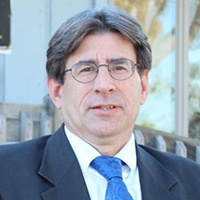Okemos Criminal Lawyer, Michigan
Sponsored Law Firm
-
 x
x

Click For More Info:
-
Goldman & Associates
615 Griswold St. Suite 1325 Detroit, MI 48226» view mapCriminal Over 30 Years Experience.
Accessibility, responsiveness, and personal commitment is our approach to client representation.
800-797-8031
Donald J. Baranski
✓ VERIFIEDDivorce & Family Law, Estate, Employment, Criminal, Consumer Bankruptcy
Thirty years in general practice
Donald J. Baranski received his Bachelor of Arts in Humanities Pre Law, from Michigan State University. This was a triple major of American History, P... (more)
Richard L. Williams
✓ VERIFIEDCriminal, Traffic
Attorney Richard L. Williams provides legal services for driver’s license restoration, expungement of criminal records, domestic assault, civil infr... (more)
Kit Sheintoch
Real Estate, Litigation, Divorce & Family Law, Criminal, Slip & Fall Accident
Status: In Good Standing
Scott M. Neuman
Divorce, Criminal, Bankruptcy, Personal Injury
Status: In Good Standing Licensed: 32 Years
James H. White
Other, Art, Entertainment, Criminal, Mass Torts
Status: In Good Standing Licensed: 23 Years
Erica G. Terranova
Estate Planning, Family Law, Guardianships & Conservatorships, Criminal
Status: In Good Standing
Richard Brandys Mandal
Immigration, Family Law, Criminal, Trusts, Wills & Probate
Status: In Good Standing Licensed: 10 Years
Dennis E. Path
Real Estate, Divorce & Family Law, Criminal, Administrative Law, Bankruptcy
Status: In Good Standing Licensed: 40 Years
 Akiva Goldman Detroit, MI
Akiva Goldman Detroit, MI AboutGoldman & Associates
AboutGoldman & Associates Practice AreasExpertise
Practice AreasExpertise


